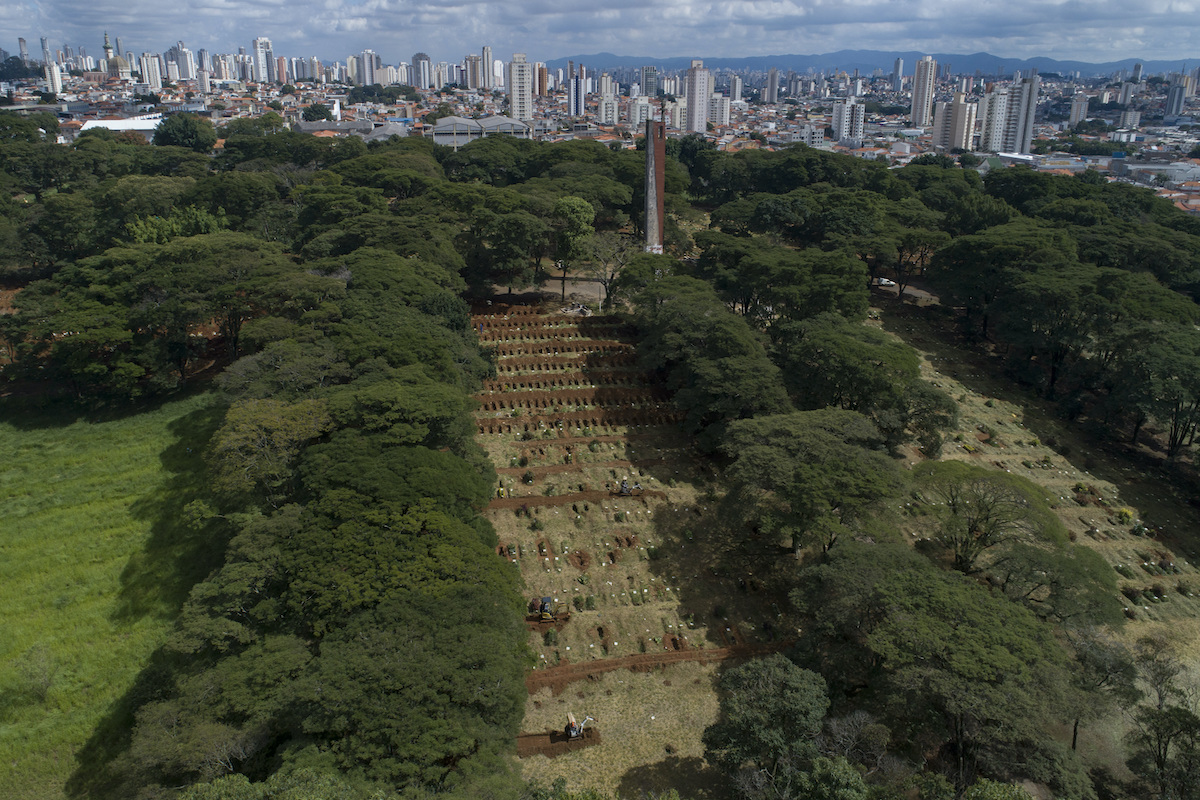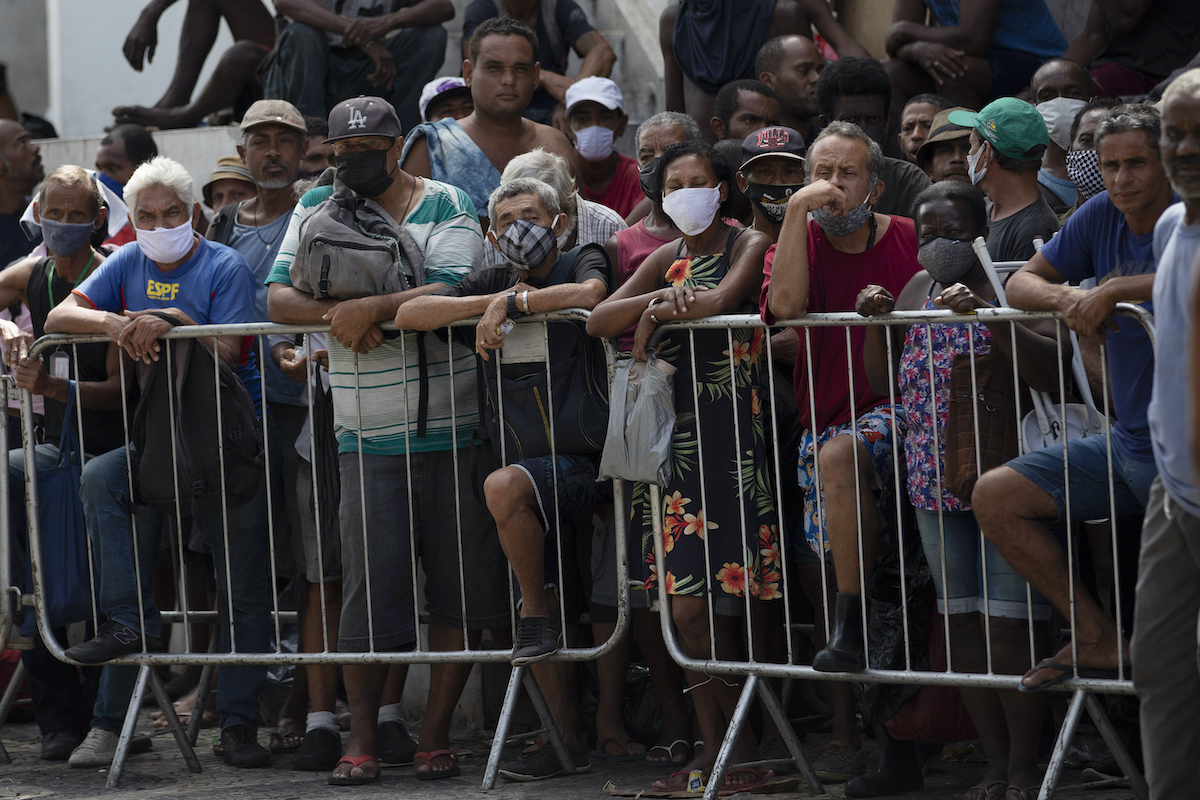

Workers use small bulldozers to dig more graves amid the COVID-19 pandemic at the Vila Formosa cemetery in São Paulo, Brazil, Wednesday, April 7, 2021. (AP Photo/Andre Penner)
RIO DE JANEIRO (AP) — Brazilian President Jair Bolsonaro said on Wednesday there would be “no national lockdown,” ignoring growing calls from health experts a day after the nation saw its highest number of COVID-19 deaths in 24 hours since the pandemic began.
Brazil’s Health Ministry registered 4,195 deaths on Tuesday, becoming the third country to go above that threshold as Bolsonaro’s political opponents demanded stricter measures to slow down the spread of the virus.
“We’re not going to accept this politics of stay home and shut everything down,” Bolsonaro said, resisting the pressure in a speech in the city of Chapeco in Santa Catarina state. “There will be no national lockdown.”
Brazil’s conservative president also defended the use of so-called early treatment protocols, which include anti-malaria drug hydroxychloroquine. No scientific studies have found the drug effective to prevent or treat COVID-19.
“There is not enough vaccine today in the world. We need to find alternatives,” he said.
The number of deaths in Chapeco linked to the virus has finally come down after some very difficult weeks. Intensive care units had surpassed capacity, forcing authorities to transfer infected patients to hospitals in other states.
Last month, the city implemented some restrictions on the economy for two weeks, but Bolsonaro attributed Chapeco’s recent success to the use of early treatment protocols, newspaper Estadão reported.
In an open letter published Tuesday in the newspaper O Globo, the Brazilian Association of Collective Health, which counts nearly 20,000 members, called for a three-week nationwide lockdown.
“The serious epidemiological situation that is leading to the collapse of the health system in several states requires the immediate adoption, without hesitation, of strict restrictive measures,” the statement said.


Homeless, unemployed, people on social vulnerability, wait in line to receive meals donated by the Leao Xlll Foundation amid the Covid-19 pandemic in Rio de Janeiro, Brazil, Wednesday, April 7, 2021. (AP Photo/Silvia Izquierdo)
Intensive care units in most Brazilian states have an occupation rate above 90%, though figures have been stable since the past week.
The Supreme Court is ruling later today on the reopening of religious buildings nationwide. Many local authorities decided to ban large religious gatherings in spite of a federal government decision to label them as part of essential services.


